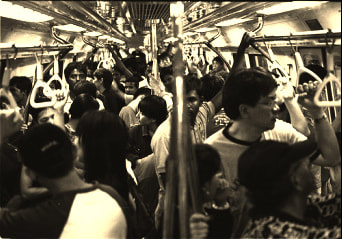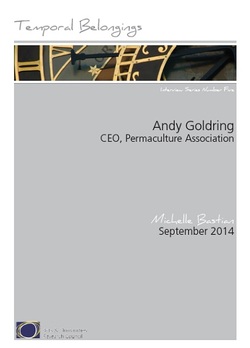Originally published on the Sustaining Time blog, part of an AHRC funded project which asks the question: What would be the time of a sustainable economy? This post is written by Chris Warburton-Brown  Rush Hour by Tuan Minh Pham Rush Hour by Tuan Minh Pham Chris Warburton-Brown is the Research Coordinator at The Permaculture Association and in this post he explains why Permaculture UK got involved in the Sustaining Time project. Wasting time, spending time, giving you my time, running out of time, investing time, in your own time... all of these common phrases suggest that we see time as a finite, own-able resource like any other. And it would be fair to say that most of us feel that resource is often in short supply in our lives as we try to reconcile the demands of work, family and leisure. But unlike other finite resources that are in short supply in post-industrial society, most of us in the environmental movement have not yet formulated much response to the shortage of time we often experience. This is all the more strange when we realise that our relationship to time as a finite resource is intimately linked to our relationship to other finite resources; oil to fuel rapid transport, electricity to power labour saving (i.e. time saving) domestic devices, farmland or forest lost to build road, rail and airport infrastructure. The slow food movement has made these connections and recognised that locally grown and cooked food made using craftsmen skills outside of the industrial food and transport systems will be slow food. They have set an example for us to follow. All of us with an environmental perspective on the world should be thinking hard about our relationship to time and how we might apply the same principles of conservation, use reduction and alternative approaches that we have come to take for granted with other finite resources. I hope the Sustaining Time project will help us with that thought process. |
Archives
November 2022
Categories
All
|
||||||||

 RSS Feed
RSS Feed
